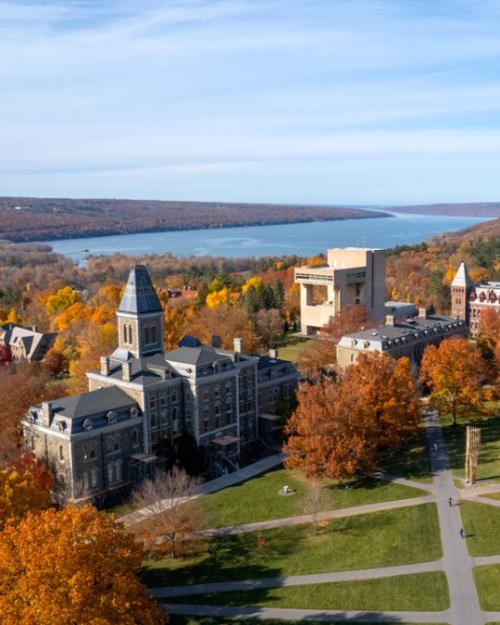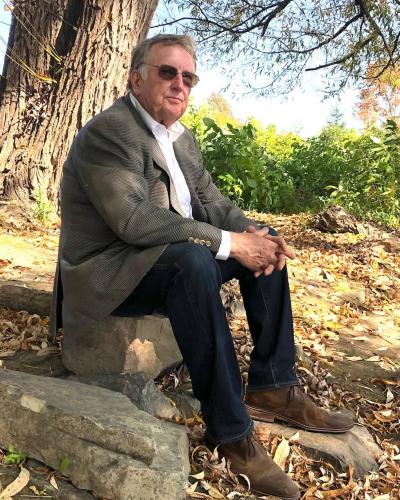John J. Macionis, Professor Emeritus of Sociology at Kenyon College, has made extensive contributions to sociology through his teaching, writing, and activism throughout his 50+ year career. Born and raised in Philadelphia, Macionis's journey in sociology started at Cornell University, where he received a Bachelor’s degree in 1970, after which he earned a doctorate in sociology from the University of Pennsylvania. Macionis is the author of the most widely used textbooks in introductory sociology, social problems, and urban studies, which are published by Pearson Education. These titles are available in Canadian and European editions and have been translated into more than a dozen other languages. In 2002, the American Sociological Association presented him with the Award for Distinguished Contributions to Teaching. His areas of interest include social stratification, social change, social problems, politics and policy, deviance and conformity, urban sociology, and human health, and he has taught courses and authored learning materials on all these topics. The latest information on all of John's titles is available at his personal website.
Drawn to the unfamiliar, Macionis has visited some fifty nations and this leads him to apply a global perspective in his teaching and research. In 1988, he joined the faculty of the University of Pittsburgh's Semester at Sea program, designing courses to explore social life in a dozen Asian and African nations on a semester-long journey that circled the globe. In 1994, Professor Macionis completed a second round-the-world voyage, visiting half a dozen additional countries and directing the program's global education course required of all students. He has traveled extensively throughout Europe as well as in Ecuador and Peru, exploring both large cities and remote settlements.
Since his retirement from full-time teaching, Macionis remains active in developing the learning materials for all his books, reflecting his lifelong dedication to education and social change. He also advocates for various causes. As an active environmentalist, Macionis has served as the president of the board of directors of the Lake George Land Conservancy in New York’s Adirondack Mountains. He also seeks to advance understanding of U.S. history through support of Fort Ticonderoga, where he currently serves as vice-chair of the board of trustees.
John's favorite downtime activities include tennis, swimming, and hiking. Music has also been a lifelong passion; he has played in a number of pop bands during and after his college days, and he still enjoys performing and recording oldies rock and roll. (You can download one of John's CDs at his personal website.)
What are your fondest memories of your time at Cornell/ in Ithaca?
I enjoyed the excitement of life on a large campus and meeting interesting people from so many different backgrounds and places. Playing music at Cornell and on campuses around upstate New York was a blast although, of course, I don't remember much about that...
Do you recall the names of any sociology professors during your time at Cornell who stand out in your memory as being particularly significant?
Gordon Streib impressed me, and we stayed in touch for many years. Nick Tavuchis encouraged me to stick with sociology. Rose Goldsen was a real trip...
You started off your studies at Cornell in Engineering—what inspired your shift to Sociology?
Honestly? I damn near busted out of engineering. In high school, I aced the physics achievement test on the SAT, and my physics teacher convinced me that I was destined to become an engineer. That turned out to be as far from the right career for me as Shanghai is from Toledo. I did learn an important lesson, however: What may appear to be failing at something important may well turn out to be a wonderful opportunity to find a better life direction. The following semester, I began my career in arts and sciences. Because most of the credits I earned in engineering did not transfer to A&S, the dean cautioned that I could never graduate on time and--remember, this was 1967--I might end up being drafted. "Watch me," I gently responded.
A Moment of Apparent Triumph (an excerpt from John's unpublished memoir titled Dancing at Dusk, which describes the end of his engineering career in the winter of 1967, when he spectacularly failed the final exam in Electrical Engineering 241):
During that fall term, the toughest class I had was Electrical Engineering 241. I never caught on to this course at all. Ithaca was already blanketed in snow when I arrived in the lecture hall to take the EE 241 final exam, armed with only a slide rule. It felt like I was entering a court room about to enter a plea of nolo contendre.
The proctor passed out the exam—four questions on two sheets of paper. I inspected question one. There was a sketch of a complex circuit and I was asked to calculate total resistance, voltage at various points, and other facts well beyond my grasp. To avoid panic, I promptly moved on to question 2.
Then 3.
And 4.
Half an hour into the two-hour exam, I faced the grim reality that I had no clue how to answer any of the questions on the EE 241 final exam. Collapsing in my seat, I tried to comprehend how I had gotten myself into such a fix. That turned out to be a fifth question that I could not answer.
Then a moment of sheer inspiration.
If I were going down, I might as well have a little fun.
Taking a deep breath, I stood up like a gun slinger at the O-K corral, and slowly returned my slide rule to its leather case. Picking up the exam sheets and my blue book, I turned my head to survey the room from one side to the other. Dozens of students momentarily halted their work to gaze upon the genius who had completed the EE 241 exam in thirty minutes. With a smug look for all those still laboring in the vineyard, I shuffled down my row to the aisle and deliberately walked down the steps to the front of the lecture hall, where I deposited my paperwork neatly in front of the proctor. By now, every set of eyes was fixed upon me. Just before I passed through the door, I turned to gather in the unspoken accolades of my peers.
Truly, they would not see the likes of me again.
What motivated you to write your globally utilized textbooks and electronic learning materials?
I soon realized I loved teaching and writing. That realization led me to author textbooks, which is the natural fusion of the two pursuits.
I began writing texts in the late 1970s as a natural extension of teaching in a classroom. It is true that the books have been widely used in other parts of the world. In a similar way, I suppose, global awareness is a natural extension of the sociological perspective. After a few years of teaching at Kenyon College in rural Ohio, I became more aware that most of us live out our lives nibbling at a single slice of the sweet melon of possibility. Engaging with students who were born and raised in other places helped me to realize that. It also fired-up my curiosity about the unfamiliar. T.S. Eliot once remarked: "Oh, do not ask 'what is it?' Let us go and make our visit." So I got out there. In the same way that sociology makes the familiar unfamiliar, it invites us to go bigger, making the larger, unfamiliar world a bit more familiar. I did not write texts with the intention of selling them around the world. But I did write them to reflect my own expanding global awareness and curiosity. After all, the vast majority of our students, I am sure, live out their lives in a single nation; many in a single town. I suppose my entire career as an academic writer is an effort to use the power of our discipline to ignite curiosity.
How do you go about fostering a sense of global citizenship and cultural understanding among your students?
By explaining to students the reality of cultural difference. This is not an easy lesson to learn. Confronting difference is unsettling. That's reflected in the fact that the root of the word "travel" also means "to work hard." Encountering difference is always challenging, but it is also the path to growth and understanding. And, maybe, to a more peaceful world.
What causes are you most passionate about, and how have you used your platform to advocate for them?
I have devoted many years to do what I can to enhance global understanding. More recently, I have come to recognize that the large majority of young people in the United States have little or no understanding of the history of this nation. My work with Fort Ticonderoga in upstate New York is my small bit to remedy that. Learning about others is vital. But it is also important to learn about ourselves.
What are you envisioning for the next few years? Anything in particular you’re hoping to accomplish/ experience?
I am just finishing a new book on the biochemistry of the human body, which explains how nutritional imbalance is the root cause of the epidemic of obesity and diabetes that is sweeping this country. The likely title of this short book is "The Kick-Ass Guide to Living Lean and Long; Why Diets Don't Work and the Science That Really Does," authored by myself and Myrna Haag, nutritionist extraordinaire. The book should be out by the end of 2024. I spent most of my life trying to figure out how to live lean and long, along with tens of millions of others. Myrna has the answer. It's not a diet, it's science. All I did was to give words to her wisdom.





